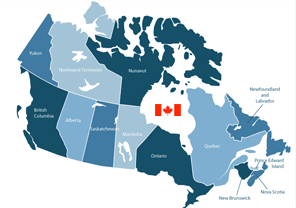Your Triggers
A trigger is any event, change, external stimulus, or physical act which seems to result in migraine. It precedes the attack by a short interval which could be as much as up to 6 to 8 hours. Identifying a trigger is not always easy. Almost any factor can trigger an attack in a person predisposed to this condition, and the list of possible suspects can be long and confusing.
How to Identify Triggers
It may not be easy to identify what is triggering your migraine if your attacks are linked to a number of different things. A trigger may not cause an attack every time, which may confuse the situation even more.
Imagine you are a young woman and your triggers are skipping a meal, stress and a change in hormonal levels. If you come home late from a very stressful meeting at work, your period is just about to start, and you go straight to bed without eating a proper meal, you may almost certainly have an attack. If you skipped dinner another time, when the other triggers were not present, you will probably not get a migraine. Many people find that they have long periods of time without a migraine between attacks. During this time, the body seems to be in a less sensitive state, and you may find that even a combination of triggers does not start a migraine.
Sometimes triggers can be wrongly identified. For example, at the beginning of an attack, you may experience a craving for sweet things. If you eat some chocolate to satisfy this craving, and then get a headache, you may identify chocolate as one of your triggers. In fact, you were starting to get a migraine before you ate the chocolate. One of the best ways of identifying triggers is to keep a detailed diary. Our factsheet 'Migraine triggers' outlines many of the common triggers.
Keeping a Diary
Trigger factors can influence an attack up to 48 hours before the headache comes on. A migraine diary can help you to look at this period before each attack. You may notice a pattern of possible triggers which are occurring together during this time.
You should try to keep a record of things like:
- when you get up
- what you do (going to work, watching TV)
- where you are (your environment can contain triggers, such as strip lighting)
- what you eat and drink
- when you eat and drink
- when you have bowel movements
- exercising or travel
- your mood
- what the weather is like
- (for women) your menstrual cycle
- if you have a migraine or other headache, its severity and symptoms
- the medications you take and the dosage
- anything you can think of that is a changing part of your lifestyle
The timing of your attacks may also help you to identify your triggers. For example, if you suffer at weekends, your headache may be triggered by caffeine withdrawal due to drinking fewer cups of tea or coffee at home than at work. Winding down at the weekend after a stressful week at work can also bring on attacks. Some sufferers find that too much sleep at the weekends can trigger an attack. Our factsheet 'Caffeine, sleeping late and weekend headaches' gives more information on this subject.
Headache & Migraine Diary (PDF) »
Reprinted with permission from Novartis Consumer Health, Inc. (www.Exedrin.com)
Instructions, Migraine Diary (PDF) »
Avoiding Triggers
If your migraine attacks are triggered by a single thing that is easy to avoid, you may be able to stop most of your attacks from happening. It may be harder to avoid attacks that are triggered by a combination of factors.
It is important to be clear about what you expect to achieve from a routine for managing migraine, and that what you expect is realistic. For example, aiming to reduce how often the headaches happen may be realistic, but wishing for a life without headaches may not be. A realistic goal will give you something to aim for. You should not feel bad, or guilty, if you cannot control all your attacks by avoiding triggers. Many sufferers require other management methods to bring their condition under control.
Lifestyle Changes
Changing your lifestyle can be difficult, for a number of reasons:
- routines can be hard to break
- other people may be involved, so changes are more difficult to arrange
- major changes may be necessary, which take time, effort and support
However, if you are able to make these changes, you may find they lead to major improvements in your quality of life.
You should aim to take a sensible amount of exercise each week, and eat a nourishing, well-balanced diet. If you are fit and in good general health, you will be able to better cope with migraine attacks when they do occur.
You may continue to have disabling headaches even after looking at all the issues talked about here. If this is the case, you need to talk to a doctor about the possibility of using preventative treatment (medication to try and stop the headaches happening).
Reprinted with permission from:
The Migraine Trust
52-53 Russell Square, London WC1B 4HP
Tel: 020 7436 1336
Registered Charity No.1081300
www.migrainetrust.org
Find us on Facebook, Twitter and Justgiving

